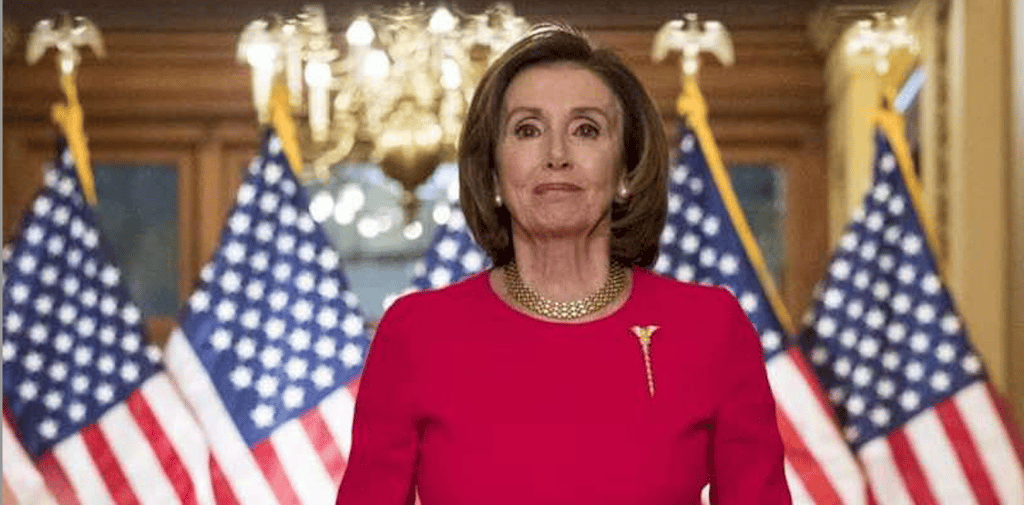Congress and the Stock Market: Should Lawmakers Be Banned from Trading?
4/25/20254 min read


Congress and the Stock Market: Should Lawmakers Be Banned from Trading?
Introduction: A Bill That Could Change the Game
On April 24, 2025, a post from JD Vance News on X sparked heated debate: Congress is inching closer to passing a bill that would ban stock trading for members, their spouses, and children. The post, featuring a poised Nancy Pelosi in front of American flags, called out the former Speaker by name, framing the bill as a “major blow” to her financial playbook. With Pelosi’s husband, Paul, often making headlines for his eerily timed trades, like selling $500,000 in Visa stock just before a 2024 DOJ antitrust lawsuit (Newsweek, 2025), the bill taps into a long-simmering public frustration. But is this reform the fix we need, or just political theater? Let’s dive into the controversy and what it means for trust in government.
The Insider Trading Problem: A National Concern
Congressional stock trading has been a thorn in the side of public trust for years. A 2023 Pew Research survey revealed that 80% of Americans think Congress struggles to separate financial interests from legislative duties (wcpo.com, 2025). And the numbers back up the skepticism: in 2022, 97 members of Congress traded stocks tied to their committee work (The New York Times). From disaster profiteering—like Kelly Loeffler’s pandemic-related trades in 2020—to defense stock trades during the Ukraine war, lawmakers seem to have a knack for cashing in on crises (cgaa.org, 2025).
The 2012 STOCK Act tried to curb this by requiring trade disclosures within 45 days, but enforcement is weak. As Newsweek put it, it’s a “get rich, then notify the peasants” clause. Enter the proposed ETHICS Act, which would ban Congress members, their spouses, and dependents from trading or owning individual stocks, with real penalties for violations (citizensforethics.org, 2024). Public support is overwhelming—most Americans want this ban. But will it actually happen?
Nancy Pelosi: The Poster Child of the Debate
Nancy Pelosi has become the face of this issue, not because she trades stocks herself, but because her husband’s trades are uncannily successful. Since 2008, her net worth has ballooned to over $100 million, thanks in part to Paul Pelosi’s investments (Newsweek, 2024). Critics argue this reeks of insider knowledge—after all, lawmakers have access to non-public information. But as some X users pointed out in replies to JD Vance News, Pelosi, at 85, might not care. “She’s near retirement. She and her family have gotten rich while she was in office,” wrote @DonnaShaw10. Others, like @bradley_bever, called the bill “way overdue” but doubted its impact on “Nasty Nancy,” who could just retire and laugh at the “chumps in Congress” who can’t trade anymore.
The Other Side: Lawmakers Push Back
Not everyone agrees with the ban. Some lawmakers argue they should be free to manage their retirement accounts like anyone else, citing “monetary fairness” (cgaa.org, 2025). Others, like @StephenR72443 on X, think Congress is stalling on bigger issues—judges, fair elections—and should focus there instead. Meanwhile, actions like Cincinnati Congressman Greg Landsman’s 2024 sale of $379,000–$1.44 million in stocks to align with transparency goals show some are taking proactive steps (wcpo.com, 2025). But is self-regulation enough, or do we need a hard ban?
What’s at Stake for Democracy?
At its core, this debate is about trust. The ETHICS Act aims to restore faith in government by ensuring elected officials act in the public’s interest, not their own (citizensforethics.org, 2024). But as @Reefus75 on X pointed out, what about other accountability measures? Shouldn’t Pelosi face scrutiny for her role in the Jan. 6 committee’s document destruction or her decisions during that day’s chaos? The stock trading ban might be a step forward, but it’s not a cure-all for Congress’s ethical woes. And with some lawmakers already divesting—like Landsman—will the bill just punish the latecomers while the big players walk away unscathed?
Conclusion: Where Do You Stand?
The push to ban congressional stock trading is gaining momentum, but it’s not without complications. On one hand, it could rebuild public trust and curb insider trading. On the other, it might not address deeper systemic issues—or even touch those who’ve already profited. As this bill moves forward, the question remains: can Congress truly put the public first?
Thought-Provoking Questions:
- Do you think banning stock trading for Congress will restore trust in government, or is it too little, too late?
- Should lawmakers like Nancy Pelosi face retroactive accountability for past trades, or is focusing on future reform enough?
- What other measures would you propose to ensure Congress prioritizes the public over personal gain?
Let me know your thoughts in the comments—I’d love to hear where you stand!
Reference:
- The X post from JD Vance News highlights a proposed bill to ban stock trading by Congress members, their spouses, and children, targeting perceived insider trading, with Nancy Pelosi often cited due to her husband Paul Pelosi’s successful trades; her net worth has grown significantly since 2008, partly from his investments (Newsweek, 2024).
- Congressional stock trading has long been controversial—97 members traded stocks tied to their committees in 2022 (The New York Times), and a 2023 Pew Research survey found 80% of Americans believe Congress struggles to separate financial interests from legislative duties (wcpo.com, 2025).
- The post’s timing aligns with rising scrutiny, as seen with Cincinnati Congressman Landsman selling $379,000–$1.44 million in stocks in 2024 to support transparency, amid broader calls for reform like the 2012 STOCK Act, which mandates timely trade disclosures (wcpo.com, 2025).
Photo Credit: GettyImage
hello@boncopia.com
+13286036419
© 2025. All rights reserved.